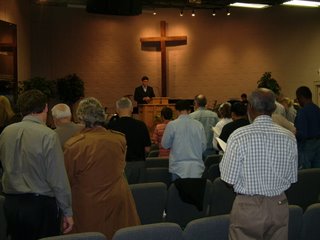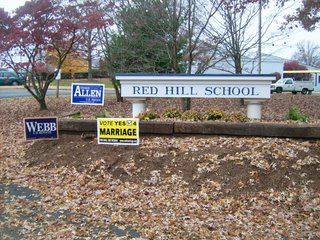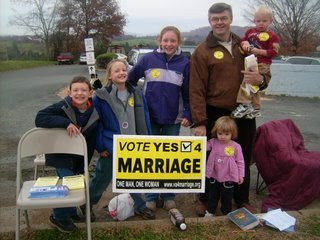ETS is the largest gathering of evangelical scholars, pastors, and students, probably in the world. There were literally hundreds of papers delivered in parallel sessions along with several larger plenary sessions.
Baptist Press has
an article on ETS’ adoption of a more clearly definition of inerrancy as a test for membership in the society and
an article on Wayne Grudem’s presentation in which he offers an evangelical evaluation of George Bush’s presidency and concludes it has been good. Though the general theme was "Christians in the Public Square" papers were presented on many topics.
Which did I go to?
I got there late Wednesday, so I missed all of that day’s sessions, though I went with Marcus, et al to Capital Hill Baptist Church for their Wednesday evening inductive Bible Study led by Mark Dever on I Corinthians 1:4-10. Mark led an open discussion on whether or not denominations are bad. Reminded me of our covering of the topic recently in Body Life.
Thursday morning I went to Bruce Ware’s session on the Trinity in the "Gender and Evangelicals Study Group." Ware and Grudem have been criticized by some, like Australian Anglican Kevin Giles, for their views on the Trinity as supporting the complementarian views of men and women (ontological equality and functional distinction, but not mutual submission, a la the egalitarian view of the Trinity).
I then went to a very engaging presentation by Dennis M. Swanson of the Master’s Seminary on "Charles H. Spurgeon and the Ministries of the Metropolitan Tabernacle: A Model for Evangelical Action." He noted that Spurgeon’s view of man’s sinfulness led him to see the answer to societal ills in preaching the gospel to individuals rather than attempting to change social structures.
Next I went to Dan Heimbach’s (of SEBTS) presentation on "Rethinking Natural Law." The upshot: If you want to talk to a modern pagan about why you oppose gay marriage the best answer is just to appeal to the Bible rather than try to appeal to natural law (which the postmodern pagan does not accept anyway).
Thursday afternoon I went to the session by Bill Wilder (fellow UTS NT PhD grad from the Center for Christian Study here in C-ville) on Paul’s use of Psalm 68 in Ephesians 4:8.
I also went to John Makujina’s paper in the Apologetics Study group in which he gave an excellent critique and rebuttal of John Shelby Spong’s "The Sins of Scripture."
In the late afternoon, we went to the plenary session by John Piper (the Crossway Lecture) on "William Tyndale and the Vernacular Bible." The hall was packed and Piper did not disappoint. He contrasted the Erasmian quality of much modern scholarship and church talk (playful, light, clever, flippant, a la some emerging church folk) with the "blood earnest," gospel saturated life of the martyr Tyndale.
After the Thursday banquet we went to a private meeting held by the Bethlehem Institute with about 40 men including Bethlehem interns and guests with John Piper. The discussion ranged from missions, to whether J. Edwards’ view of justification is orthodox (you should have been there when one participant said he had come not to like Edwards very much!).
Friday morning we came back in, looked at the book exhibit, and I did my paper, "A Theological Critique of Multi-Site Ministry." I had a good audience and got encouraging feedback. Mark Overstreet of Criswell College was the moderator for the session. I hope to post the paper on the JPBC website soon.
I left Friday afternoon to meet my family in Woodbridge. On Saturday, we went to former JPBC member and UVA student Sondra Smith’s wedding to Eric Williams at Mt. Olivet Baptist Church in Beaverdam, VA.
Again, I do not usually travel much but the last two weeks have been busy. Thankfully we are home for Thanksgiving this year with all Llewellyn’s clan coming up from Sanford to spend the holiday with us.
JTR

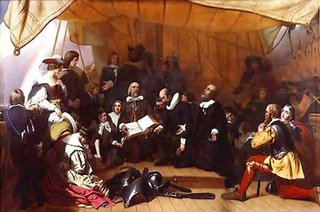
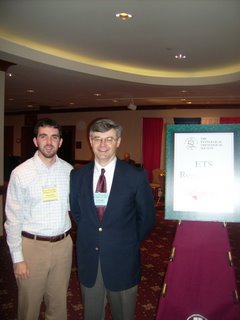
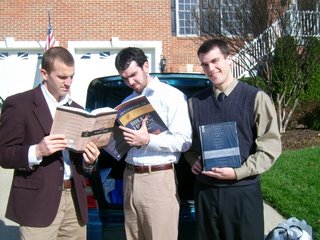
 Playing catch up.
Playing catch up. 